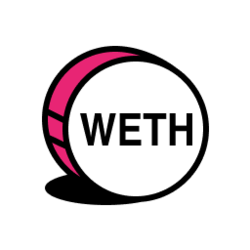Imagine writing a sentence and getting a live blockchain app in return – no code, no setup, no wallet drama. That’s the promise of Poof, a new open beta built on Solana that turns simple prompts into fully functioning on-chain applications in minutes.
Aimed at breaking down the barriers to Web3 development, Poof leverages AI and Solana’s ultra-fast infrastructure to make dApp creation feel as easy as chatting with ChatGPT.
From Prompt to Production
The core mechanic is disarmingly simple. Users enter a description of what they want, such as a token launchpad, a game, or a tipping-enabled chatroom, and Poof handles the rest. Within moments, a live on-chain app is generated and deployed to Solana, complete with smart contracts and a working front end.
This “prompt-to-dApp” approach makes blockchain development accessible to virtually anyone. Whether you’re a crypto-curious artist or a startup MVP builder, Poof removes the need to learn Solidity or navigate dev tooling. It’s the difference between imagining an app and actually shipping it.
Examples: Weird, Fun, and Fully Onchain
The kinds of apps being created during the beta range from whimsical experiments to clever, incentive-driven microservices:
- Tipchat is a real-time chat room with built-in SOL tipping.
- Flappy Bird Clone, reach a set score, and win SOL.
- MiniBoop, launch your meme token and reward early adopters.
Each one is built directly on Solana, meaning they’re not just prototypes or simulations, but live, composable components in the Solana ecosystem.
Poof’s strategic potential
For Developers
Poof slashes the time and complexity of deploying smart contracts, opening the door for solo builders, tinkerers, and product designers who previously bounced off the steep blockchain learning curve. It’s a sandbox for rapid experimentation and viral app launches.
For Solana
This positions Solana as arguably the most user-friendly smart contract platform, with instant deployability that reinforces its reputation for speed and low fees. It could also supercharge composability, as Poof-created contracts plug into existing DeFi and NFT ecosystems.
For End Users
Users get more than apps, they get experiences. Apps like Tipchat and Flappy Bird aren’t just fun; they show how easy it is to create monetized interactions. By embedding SOL into simple games or interfaces, Poof gamifies blockchain creation itself.
The ChatGPT moment for dApps?
Poof echoes the rise of generative AI tools by enabling a similar interface: just say what you want. Much like ChatGPT turned everyone into a content creator, Poof could turn everyone into a Web3 builder. The barrier to entry isn’t lowered, it’s dissolved… almost.
This also sparks more profound questions. What happens when anyone can launch tokens or apps? Will it lead to a flood of spammy projects, or a renaissance of grassroots innovation? The answer may lie in how Poof handles moderation, transparency, and scalability.
Risks and realities
While the platform is promising, several open questions remain:
- How does Poof prevent malicious content from being generated and shared before moderation?
- Can developers export or fork their Poof-generated code?
- What’s the long-term business model, fees, subscriptions, or tokenomics?
- Is cross-chain support coming, or is Poof betting entirely on Solana?
While Poof enables near-instant deployment of blockchain applications, it makes clear that you alone are responsible for the legality, reliability, and safety of your dApp. That includes AI-generated outputs, smart contracts, tokenomics, and user interactions. Poof disclaims any control or endorsement of what you create, even on its own subdomains. It’s a powerful canvas, but you’re the painter, and the one liable if things go wrong.
Outputs generated by Poof’s AI systems, including code, game mechanics, or token logic, are provided “as-is.” There’s no guarantee they’ll work as expected or be free from bugs, biases, or vulnerabilities. And yes, you’ll burn credits even if your dApp fails to deploy or breaks on execution. In other words, experimentation has a cost, even when it feels like magic.
Poof emphasizes that apps involving scams, “rug pulls,” phishing, or other abusive behavior violate its terms and may be removed or blocked. It reserves the right to suspend access, even for paying users, if they violate policies or engage in risky behavior. Builders should be mindful that Poof is not an unmoderated playground; there are lines you can’t cross, and consequences if you do.
Closing thoughts
In a world of increasingly abstracted technology, Poof might be the most radical abstraction yet: turning intention directly into execution on the blockchain. If it delivers on its promise, Poof could reshape how we think about Web3 development.
We tried to build a simple CryptoSlate newsreader app using Poof, but unfortunately, we ran into some errors and couldn’t deploy the code within our time constraints.

The app started great with a simple, clean UI created in moments.

We were then prompted to change the theme. We chose ‘Matrix vibe,’ and again, Poof did not disappoint with a cool Matrix-style animation in the app header.

However, that’s about as far as we got. After asking Poof to integrate the CryptoSlate RSS feed, it informed us that API calls are not yet available. Then, when we gave it a sample of the RSS feed and later a simple list of recent articles, it stopped functioning and would no longer generate anything.

We repeatedly encountered a syntax error, which we could not bypass no matter how we prompted Poof.

We did try to simply publish the mockup UI and connect it to on-chain tipping as per the original plan, but that also failed. I’m going to assume that sending an entire RSS feed XML via the prompt text box is what borked the system so perhaps a character limit is needed on the user input field to avoid this in future.
It’s clearly an exciting example of AI’s ‘vibe coding’ and blockchain, and we’re still in the very early days of this sort of thing. The example apps look great, so we’ll chalk this one off to user (over-eager) error for now.
Want to try it? Just type a prompt at poof.new and see what happens.
CryptoSlate has no affiliation with Poof, and this article should not be considered an endorsement of the project. We used a newly created burner wallet for security purposes in our testing.
The post Poof is Solana’s new magic trick for no-code prompt-based blockchain development appeared first on CryptoSlate.
Imagine writing a sentence and getting a live blockchain app in return – no code, no setup, no wallet drama. That’s the promise of Poof, a new open beta built on Solana that turns simple prompts into fully functioning on-chain applications in minutes. Aimed at breaking down the barriers to Web3 development, Poof leverages AI
The post Poof is Solana’s new magic trick for no-code prompt-based blockchain development appeared first on CryptoSlate. AI, Technology, Tokens CryptoSlate























































































































